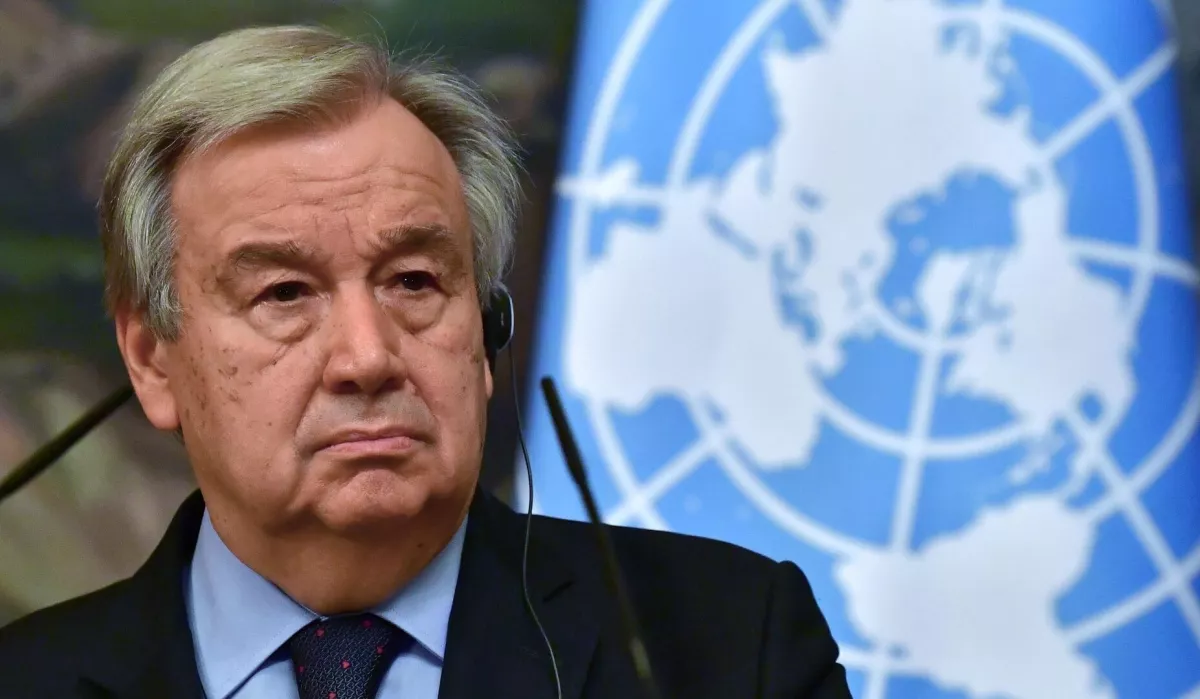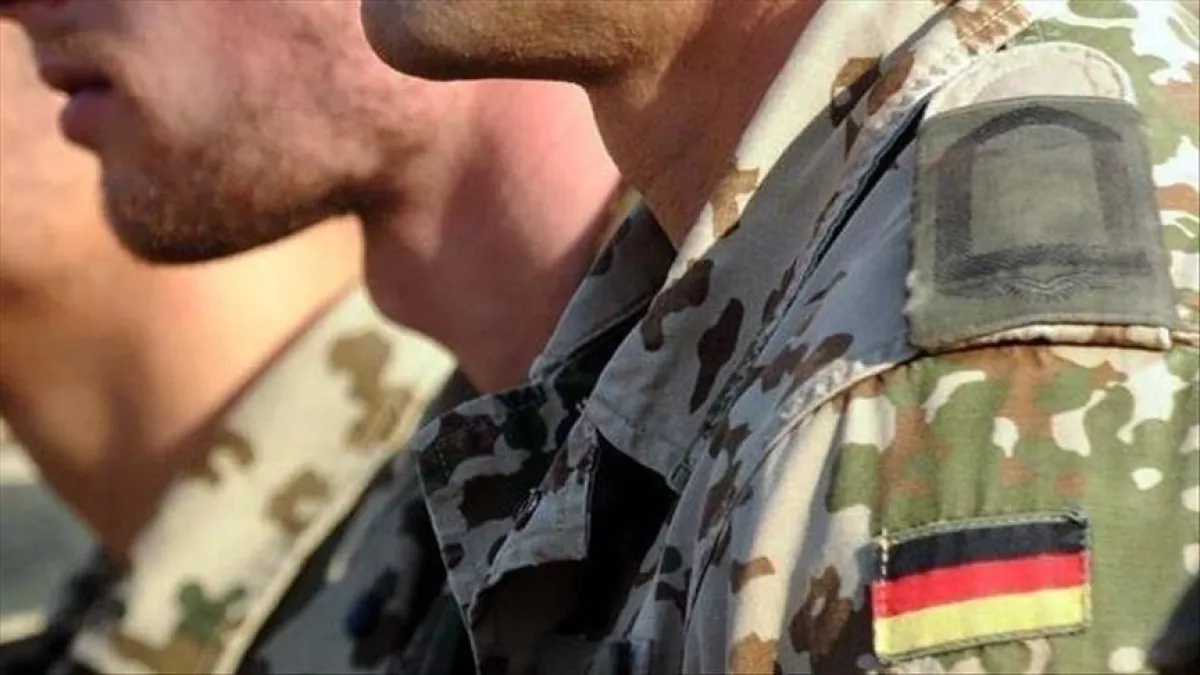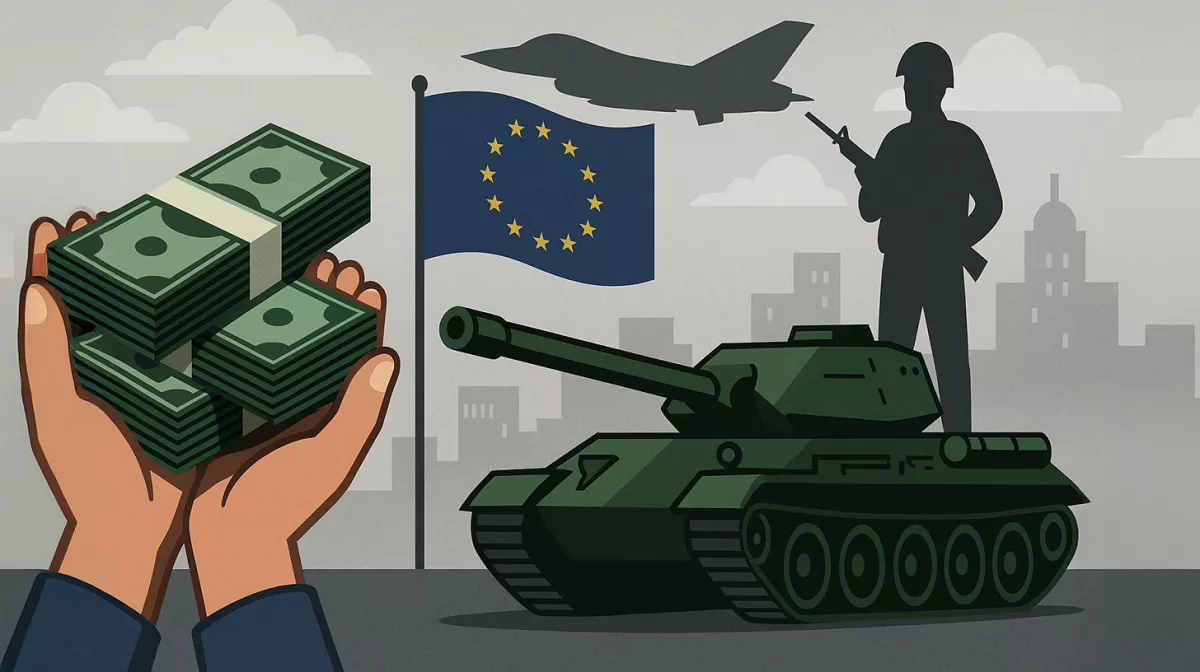EU’s security illusion Rising military spending fails to deliver peace
In the latest September report by the United Nations on military expenditures, it is stated that the more money is spent on weapons, the more unstable and dangerous the world becomes. It seems like a simple and obvious truth, doesn’t it? Yet, no major powers have drawn any conclusions from this, and the UN is urgently calling for a change in the situation…
Security versus development?
In 2024, global military spending broke all records, reaching $2.7 trillion. The UN report on this is titled “The Security We Need: Rebalancing Military Spending for a Sustainable and Peaceful Future.” Against the backdrop of unprecedented international tensions—at least since the Cold War—UN leaders are calling for a reconsideration of the relationship between security and development.

“The evidence is clear: excessive military spending does not guarantee peace,” said UN Secretary-General António Guterres.
There are many reasons behind the military escalation threatening the world today. But the most important one is economic. In a broad sense, it is the struggle for a global redistribution of power; in a narrow sense, it is the stimulation of domestic industries using military budget funds.
In Western European countries, GDP growth has recently been slowing. Since 1991, the EU economy had grown fairly steadily. However, the Great Global Recession of 2008 put an end to this economic stability.
Barely recovering from the recession, in 2019 EU countries reached an average GDP growth of 1.6%. Then came the COVID-19 pandemic with its restrictions and lockdowns. In 2020, Eurozone countries experienced an economic contraction of 6%. In 2021, growth rebounded to 6.3%, but this was merely recovery from a low post-COVID baseline.
In 2025, EU GDP growth stands at only 1%. By comparison, China—long outpacing the West—achieved its planned GDP growth of 5% in 2024.
Against this backdrop, European countries are increasingly burdened by high public debt. In France, debt has reached 115% of GDP, while the EU average is 90%.
It is clear that the much-hyped neoliberal economic model has seriously faltered. There are many reasons for these failures, but one of the main ones is competition from China—a contest that Western “market-liberal” advocates have clearly lost. In China, authorities have successfully combined market initiative with state support for both public and private sectors, under effective central planning. In the West, however, a different—but also familiar—path was taken: stimulating the economy through increased military spending.
Tanks: a cure for economic depression?
According to the UN, global military spending has been rising for ten consecutive years—since 2014. This further confirms that, to a large extent, the militarisation of the economy helped bring an end to the Great Global Recession of 2008–2013.

Germany’s military spending trends are particularly telling. In 2007, the Bundeswehr’s budget was €24.7 billion, but in 2008 it sharply jumped to €31.1 billion—exactly when the Great Recession began. Spending continued to rise by an average of €1 billion per year until 2012, then stabilised at around €34 billion between 2012 and 2014. After that, another sharp increase began, rising by €4–5 billion per year.
The record came in 2024, when Germany’s annual military expenditure increased by more than €10 billion.
In 2024, Berlin spent €70.1 billion on military preparations (according to other sources, €88.5 billion). Over the past decade, Germany increased its military spending by 89%, ranking fourth in the world in this regard.
Looking at Germany’s GDP fluctuations, sharp declines are visible in 2008–2010, 2019–2020, and 2021–2024. Comparing GDP dynamics with military spending, it is easy to notice that increases in military expenditure often coincide with declines in economic performance. This directly or indirectly suggests that, within certain circles in the EU, the perceived way out of crises is through ramping up military preparations and escalating global military-political tensions.
France’s military budget in 2014 was €31.2 billion. It was later decided to double it by 2030—to €64 billion. In 2024, Paris spent €47.2 billion on defence, and in 2025 the budget exceeded €50 billion—an increase of more than two-thirds over a decade. Recently, Macron announced that the plan to double the military budget would be completed three years ahead of schedule—by 2027.
And it’s not just Paris with its lingering imperial ambitions! Even in quiet, peace-loving Sweden, military enthusiasm is rising: in 2026 the country’s defence budget will increase by 18%, reaching 2.8% of GDP. Notably, Sweden last went to war in 1813–1814, during the Napoleonic era.
The record-holder for NATO military spending growth is Poland—up 159% over the past ten years. Neighbouring Belarus has expressed serious concern over this trend.
The “paradoxes” of militaristic logic
Military spending is growing not only in absolute terms but also as a share of GDP. Defence expenditures rose from 2.2% of global GDP in 2022 to 2.5% in 2024, while their share of national budgets increased from 6.6% to 7.1%.

Naturally, all of this goes hand in hand with cuts to the social sector. The UN has calculated that in low- and middle-income countries, a 1% increase in military spending leads to a 1% reduction in public healthcare services. Militarisation also significantly increases the burden of public debt.
Another trend is emerging: alongside the rapid growth of military spending, funding for UN programmes aimed at achieving the Sustainable Development Goals (SDGs) by 2030 is sharply declining.
According to the UN, in 2024 funding for the SDGs was cut by 7.1%. The annual shortfall in financing for sustainable development—which until recently was a central slogan of Western leaders—has reached $4 trillion and could rise to $6.4 trillion in the near future. Notably, global military expenditures are projected to increase by almost the same amount—up to $6.6 trillion—by 2035.
The UN calls this situation a “paradox.” But it has always been the same: when someone wants more guns, ordinary people get less butter.
On the other hand, the launch of the military-industrial sector stimulates production in other industries and creates new jobs, while generating colossal corporate profits. However, experts have calculated that for every billion dollars spent on the military industry, 26,700 jobs could be created in education, 16,800 in clean energy, and 17,200 in healthcare.
The UN report also notes that if just 4% of current global military spending were redirected to fighting hunger, this problem could be eradicated for millions of people by 2030.

Ten per cent of global military spending would be enough to vaccinate every child on the planet against dangerous diseases, and 15% would suffice to implement climate adaptation measures in all developing countries.
Moreover, every dollar invested in the military-industrial complex generates twice as many greenhouse gases as the same amount invested in civilian industry. And that’s not even considering the colossal damage that weapons inflict on humanity, infrastructure, and the environment when used…
“We need a new vision of security—human-centered and rooted in the UN Charter. A vision that safeguards people, not just borders; that prioritizes institutions, equity and planetary sustainability,” says the UN High Representative for Disarmament Affairs, Izumi Nakamitsu. “Rebalancing global priorities is not optional—it is an imperative for humanity’s survival.”
UN Secretary-General António Guterres added: “At this critical moment, the international community must confront the stark reality that rising military expenditures are not yielding greater peace but are instead undermining our shared vision for a sustainable future.”
He once again called for prioritising diplomacy, peaceful dispute resolution, and transparency and accountability in military spending.
How feasible the UN’s recommendations are in practice remains to be seen. For now, however, events continue to move in the exact opposite direction…








